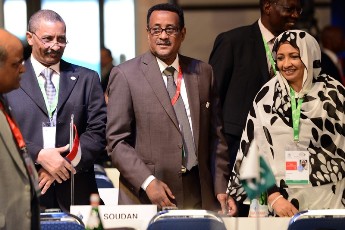Sudan unveils plans for illegal immigration crackdown
June 22, 2013, (KHARTOUM) – The Sudanese interior ministry has announced its determination to deport all undocumented foreign nationals and called upon foreign citizens to legalize their status in the country before the deadline stated by the authorities.

He stressed that the interior ministry will issue identity cards as well as numbers for foreigners in order to protect them and prevent human trafficking.
The Sudanese official further revealed that his country is working closely with the governments of Ethiopia and Eritrea to fight human trafficking, pointing out that this phenomenon began to fade as a result of their cooperation in this matter.
He warned against harboring illegal immigrants, saying that those who harbor them will be held accountable.
The U.S. state department 2012 report on human trafficking identifies Sudan as a “source, transit, and destination country for men, women, and children subjected to forced labor and sex trafficking”.
“The Government of Sudan does not fully comply with the minimum standards for the elimination of trafficking and is not making significant efforts to do so. While the government took some initial steps during the reporting period to acknowledge the existence of trafficking, draft anti-trafficking legislation, prosecute suspected traffickers, demobilize and reintegrate child soldiers, and waive overstay fines for foreign domestic workers, its efforts to combat human trafficking through law enforcement, protection, or prevention measures were undertaken in an ad hoc fashion, rather than as the result of strategic planning” the report said.
The U.S. called on Khartoum to “enact a comprehensive legal regime to define and address human trafficking crimes and harmonize various existing legal statutes; increase efforts to investigate suspected human trafficking cases, increase prosecution of trafficking offenses, and convict and punish trafficking offenders”.
Last March, the Sudanese parliament said that it expects to receive a draft bill from the cabinet soon containing an anti-human trafficking law.
Eastern Sudan in particular is believed to be serving as a passage to migrants from Eritrea, Ethiopia and Somalia who seek to reach Europe with the help of human smugglers.
(ST)
